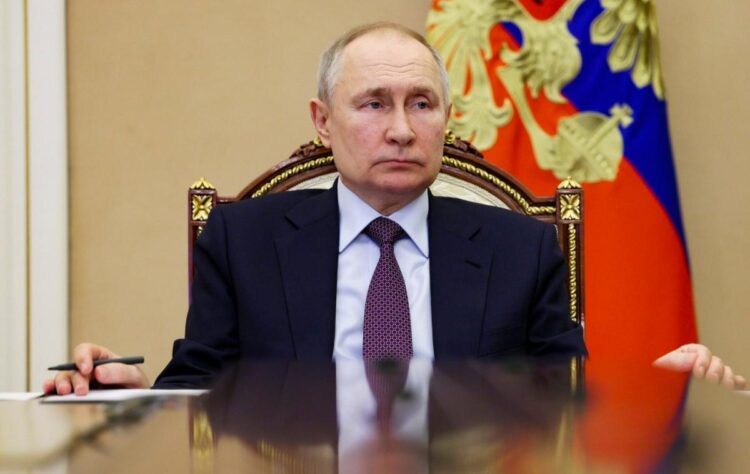
As the Russian military leadership continues to flounder in the field, it is now crystal clear that, in invading Ukraine, they were totally unaware of the strategic intentions of the Kremlin. A massive deception by their political leaders was pulled over the eyes of the young Russian soldiers who believed they were entering the country as liberators. No wonder the UK Ministry of Defence now reports issues with heavy drinking among them.
Meanwhile, Vladimir Putin has become a victim of his own hubris. He firmly believed his security services had infiltrated and undermined the Kyiv government; that a majority of the Ukrainian population were opposed to President Zelensky and favoured better links with Russia; and that his military was fit, capable and ready to mount a quick strike on Kyiv to effect regime change. Now, however, the prospect of defeat on the battlefield is becoming ever more likely and Putin’s grip on power ever more tenuous.
The Russian president knows that in order to justify his invasion, he must at the very least take and hold the four provinces that he declared to be “forever Russia” last autumn – and Crimea, of course. But on the evidence displayed so far, the latest, much-hyped Russian efforts in eastern Ukraine are likely to fail.
After months of attempts by the Wagner mercenary forces to take Bahkmut with horrifying levels of casualties, recent reports indicate that the Russians are now switching their attention to Avdiivka south of Bahkmut and towards the Kreminna-Svatove in the north, but these moves would seem to indicate that they are trying to stabilise their defensive lines rather than launch a fresh offensive. The Russian military might have already reached its culmination point.
If the Ukrainian operational command can construct a bold combined arms scheme of manoeuvre, then there is the possibility of delivering decisive blows this summer. A sustained offensive combining tanks, armoured infantry and self-propelled artillery supported by long range missile strikes and whatever close air support they can muster could finally destroy what is left of Russian morale and break the back of the Russian army.
An army does not need to be defeated in detail. If its soldiers believe they are beaten, then they are indeed beaten and, as happened around Kharkiv last autumn, Russian young men are likely to turn and run. Such a collapse could prove to be the catalyst that sweeps Putin out of the Kremlin.
Perfectly reasonably, there are fears over who might replace him, but I suggest that the group of leaders most disaffected in Russia today are the military. If the Russian chief of the general staff, General Valery Gerasimov, can garner enough support and find the moral courage to act, this war could be over well before the second anniversary. It was probably through fear of this eventuality that Putin sent Gerasimov out of Moscow to assume overall command in Ukraine.
Whether it is Gerasimov who seizes Brutus’s knife or not, Putin’s Julius Caesar moment is probably not that far away. For the sake of the Ukrainian people and the stability of Europe, Nato, the United States and the West must continue to give every support to Ukraine to end this appalling chapter of European history.
General the Lord Dannatt is a former Chief of the General Staff
[ad_2]
Source link







